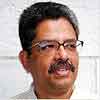I did make an honest attempt, but let me confess with that frankness for which I am known from one end of my table to a point close to the same end that I failed. Obscure tomes by monks from the Dark Ages I read and enjoy without the help of students’ guides of that era. But this, the US government’s report about reports about reports, prepared by its accounting office, stumped me. It recommends – and I have to accept this on faith, as the simplification is a journalistic one – the preparation of a report about the report about reports about reports.
Not surprisingly, it won the Literature Prize at my favourite annual awards – the Ig Nobel. Awarded for work that cannot or should not be repeated, it always manages to have a profound impact on me. Unlike the Nobel Prizes – which are obscure and awarded to scientists whose work I wouldn’t understand till the age of 150 at least – the Ig Nobel can be a guide to lifestyle.
I know now, for example, that I must persuade friends to look at me from the right rather than from the left, thanks to the pioneering work done by a team of psychologists in Rotterdam. It discovered that leaning to the left makes the Eiffel Tower appear smaller. Conversely, if you lean to the right to look at me, I will appear taller, and who wouldn’t like that? I am not particularly interested in why the hair of people living in a small town in Sweden turned green, but there is something to be said for the manner in which a cup of coffee must be carried so it doesn’t spill. Again, I must rely on a newspaper’s version since the language of fluid dynamics, like Greek or the sounds made by some tribes in the east of India, is a sealed book to me.
Apparently, you can work out mathematically exactly how not to spill the coffee. Of course, you might overshoot your destination and fall over the balcony if you were focussing on the math and not on the geography, but that is a small price to pay for scientific advancement. Decades ago, my grandmother had another theory. She advised me to sing the national anthem while carrying a mug of coffee to her to prevent any spillage. That worked. Perhaps this will too.
Now, who wouldn’t give an arm and a leg for a speechjammer (no relation to the columnjammer which hasn’t been invented yet)? There is a simplicity here and a dire need that has to be filled. How often when we listen to a bore go on and on about the tiger he shot or the movie actress he almost danced with, how often have we not prayed silently for something that will jam his speech and make him (or her, let’s be fair) shut the fup?
Well, deliverance is here. The speechjammer is a machine that disrupts a person’s speech, by making him (or her, see above) hear his own spoken words at a very slight delay. Startled by the sound of his previous sentences attacking him, the speaker shuts up (or shuts the fup, which removes all ambiguity), and peace reigns. Fully deserving of the prize.
But there’s more. For those who have spent a lifetime worrying about the balance of forces that shape and move the hair in a human pony tail, the maths is here, the science is explained, and there has been an unweaving of the rainbow. A wonderful gift for the scientific spirit, but not so good for the poetic – remember how poets accused Isaac Newton of taking the romance away from the rainbow by explaining it scientifically? We will never look at a human pony tail with the same wonder and awe again. On the other hand we might, for the maths is complicated, and understood probably by just the three people who arrived at the solution.
Not the same people who discovered brain activity in dead salmon, I presume, to land the neuroscience prize.
The Medicine Prize went to the team which advised doctors who performed colonoscopies how to minimise the chance of their patients exploding. Well done. No simplification needed here. If you think about it, this is also a report about report about reports, and we shall leave it at that.
